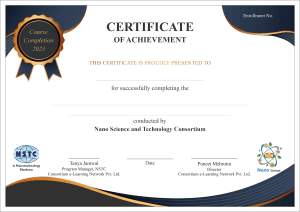
Excelling in Clinical Trial Design and Management: From Concept to Completion
Clinical trial design, Clinical trial management, Randomized controlled trials (RCTs), Blinding and masking, Sample size calculation
About Program:
Aim: This program aims to equip participants with the knowledge and skills required to design and manage successful clinical trials. Participants will gain an in-depth understanding of the clinical trial lifecycle, including protocol development, site selection, patient recruitment, data collection, monitoring, and regulatory compliance.
Program Objectives:
- Understand the key components of clinical trial design, including study endpoints, randomization, blinding, and control groups.
- Learn best practices for protocol development, including the selection of study population, intervention, and outcome measures.
- Gain insights into site selection, patient recruitment, and retention strategies to ensure successful trial implementation.
- Understand the principles of data collection, quality control, and regulatory compliance in clinical trials.
- Learn the fundamentals of clinical trial monitoring, adverse event reporting, and ethical considerations in trial conduct.
What you will learn?
Week 1: Introduction to Clinical Trials
- Overview of clinical trials and their significance in medical research
- Understanding the different phases of clinical trials and their objectives
Week 2: Ethical Considerations and Regulatory Framework
- Ethical guidelines and regulations governing clinical trials
- Informed consent process and protection of human subjects
Week 3: Study Protocol Development
- Elements and structure of a clinical trial protocol
- Inclusion and exclusion criteria, endpoints, and study procedures
Week 4: Randomization and Blinding in Clinical Trials
- Principles and methods of randomization
- Importance of blinding and strategies for maintaining blinding integrity
Week 5: Patient Recruitment and Retention
- Strategies for effective patient recruitment and retention
- Addressing challenges and enhancing patient engagement in clinical trials
Week 6: Data Collection and Management
- Data collection methods and tools in clinical trials
- Ensuring data quality, accuracy, and completeness
Week 7: Adverse Event Reporting and Safety Monitoring
- Understanding adverse event reporting requirements
- Safety monitoring, data safety monitoring boards, and pharmacovigilance
Week 8: Statistical Analysis and Data Interpretation
- Principles of statistical analysis in clinical trials
- Interpreting and reporting study results
Week 9: Regulatory Submissions and Approvals
- Preparation and submission of regulatory documents
- Interaction with regulatory authorities and obtaining approvals
Week 10: Good Clinical Practice (GCP) Guidelines
- Overview of GCP guidelines and their importance in clinical research
- Compliance with GCP standards and quality assurance
Week 11: Trial Site Management and Monitoring
- Site selection, initiation, and monitoring visits
- Ensuring compliance, data accuracy, and protocol adherence at trial sites
Week 12: Trial Closure and Reporting
- Steps involved in trial closure and database lock
- Final study report preparation and dissemination of trial results
Intended For :
Graduates, Post Graduates, Research Scholars, Academicians, Industry Professionals, Clinical Researchers, Clinical trial Coordinators, Project Managers, Data Managers, Biostatisticians
Career Supporting Skills
Program Outcomes
- In-depth understanding of clinical trial design, implementation, and management.
- Knowledge of ethical considerations, regulatory requirements, and good clinical practice guidelines.
- Competence in developing study protocols, randomization, and blinding strategies.
- Skills in patient recruitment, data collection, and adverse event reporting.
- Proficiency in data analysis, interpretation, and reporting of clinical trial results


